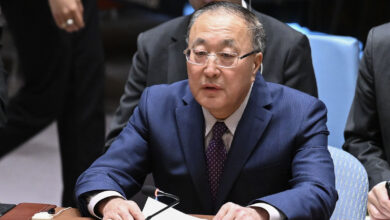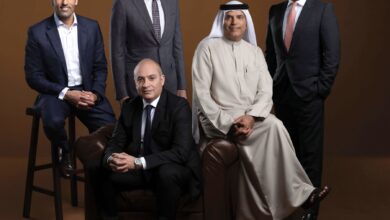Amr Moussa, secretary general of the Arab League and former foreign minister, told students at the American University in Cairo yesterday what he believes it takes to achieve peace in the Middle East.
Moussa was speaking at the fourth annual Nadia Younes Memorial Lecture, titled "A Tribute to Nadia Younes: Achieving Reconciliation in Iraq and Stability in Our Region." Nadia Younes worked for the United Nations in different capacities for more than 30 years. She died in an August 2003 bombing on the UN’s Baghdad headquarters, where she was serving as chief of staff for Sergio Vieira de Mello, the UN special representative in Iraq.
"The international career is a symbol of commitment and sacrifice," said Moussa. "It is sad that the only time that I publicly speak about Nadia is on an occasion of remembrance.”
As Moussa mourned Younes’s death, he pondered the role of the UN, implying that part of the region’s tensions, and Younes’ death, have resulted from misconceptions about the role of the international organization during global crises.
“The international career of 40 years ago is different than the international career of today," he said. "Nadia passed away when the UN role became controversial. She wanted to rebuild the UN credibility worldwide instead of being appointed to manage crises like in Iraq, [which] should be supported and defended.”
The primary cause of instability in the region, according to Moussa, is the Arab-Israeli conflict. However the top Arab diplomat is skeptical that a resolution to the 62-year-old impasse will come about soon. "We have failed through the continuous management of this crisis until it became chronic and almost impossible to resolve,” said Moussa.
The Israeli issue is not the only problem afflicting the Arab world, according to Moussa. The majority of Arab states are ruled by authoritarian regimes and Moussa said that good governance must be addressed within the Arab League. “There needs to be more transparency. We are calling for social and economic development, for individual rights, and women’s rights.”
Nonetheless, Moussa remains an optimist. "Hope is on the horizon," he said, particularly as Arab League member states prepare to meet with United States officials to discuss Middle East tensions.
Moussa said that when the Arab and American officials meet they will discuss Middle East peace with a specific timetable in mind, a change from previous negotiations which he welcomes. "This is why we are more hopeful; because President Obama restored that hope, by acknowledging the need for a specific time schedule.”
Moussa concluded his lecture by calling on his audience of young Egyptians to maintain hope and take up the mantle of peacemaking. "The next few months are crucial. We will either achieve peace, or suffer the consequences of yet another failure," he said.
"If we don’t succeed, it will be like handing over this issue to the new generation. This is why I am here, to describe what this young generation might have to face.”




